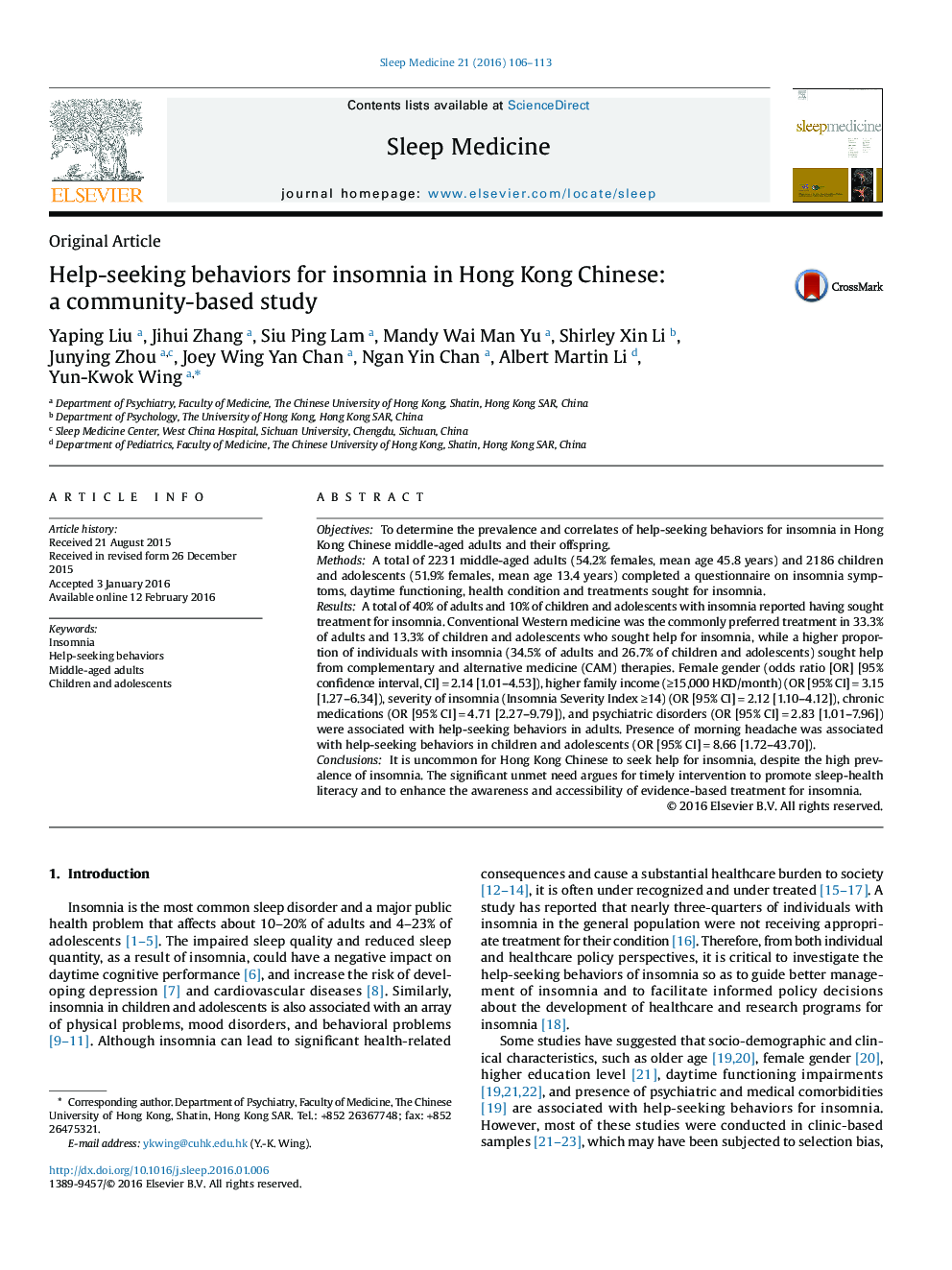| Article ID | Journal | Published Year | Pages | File Type |
|---|---|---|---|---|
| 6060222 | Sleep Medicine | 2016 | 8 Pages |
â¢The majority of the subjects did not seek help in the community for their insomnia, especially the youth populations.â¢Complementary and alternative medicines (CAM) were the commonly preferred therapies for insomnia in Hong Kong.â¢Correlates of help-seeking behaviors have clinical and health policy implications.â¢There is a timely need for sleep-health literacy promotion, enhanced accessibility to evidence-based treatment of insomnia, and further evidence-based studies, especially CAM therapies.
ObjectivesTo determine the prevalence and correlates of help-seeking behaviors for insomnia in Hong Kong Chinese middle-aged adults and their offspring.MethodsA total of 2231 middle-aged adults (54.2% females, mean age 45.8 years) and 2186 children and adolescents (51.9% females, mean age 13.4 years) completed a questionnaire on insomnia symptoms, daytime functioning, health condition and treatments sought for insomnia.ResultsA total of 40% of adults and 10% of children and adolescents with insomnia reported having sought treatment for insomnia. Conventional Western medicine was the commonly preferred treatment in 33.3% of adults and 13.3% of children and adolescents who sought help for insomnia, while a higher proportion of individuals with insomnia (34.5% of adults and 26.7% of children and adolescents) sought help from complementary and alternative medicine (CAM) therapies. Female gender (odds ratio [OR] [95% confidence interval, CI]â=â2.14 [1.01-4.53]), higher family income (â¥15,000 HKD/month) (OR [95% CI]â=â3.15 [1.27-6.34]), severity of insomnia (Insomnia Severity Index â¥14) (OR [95% CI]â=â2.12 [1.10-4.12]), chronic medications (OR [95% CI]â=â4.71 [2.27-9.79]), and psychiatric disorders (OR [95% CI]â=â2.83 [1.01-7.96]) were associated with help-seeking behaviors in adults. Presence of morning headache was associated with help-seeking behaviors in children and adolescents (OR [95% CI]â=â8.66 [1.72-43.70]).ConclusionsIt is uncommon for Hong Kong Chinese to seek help for insomnia, despite the high prevalence of insomnia. The significant unmet need argues for timely intervention to promote sleep-health literacy and to enhance the awareness and accessibility of evidence-based treatment for insomnia.
